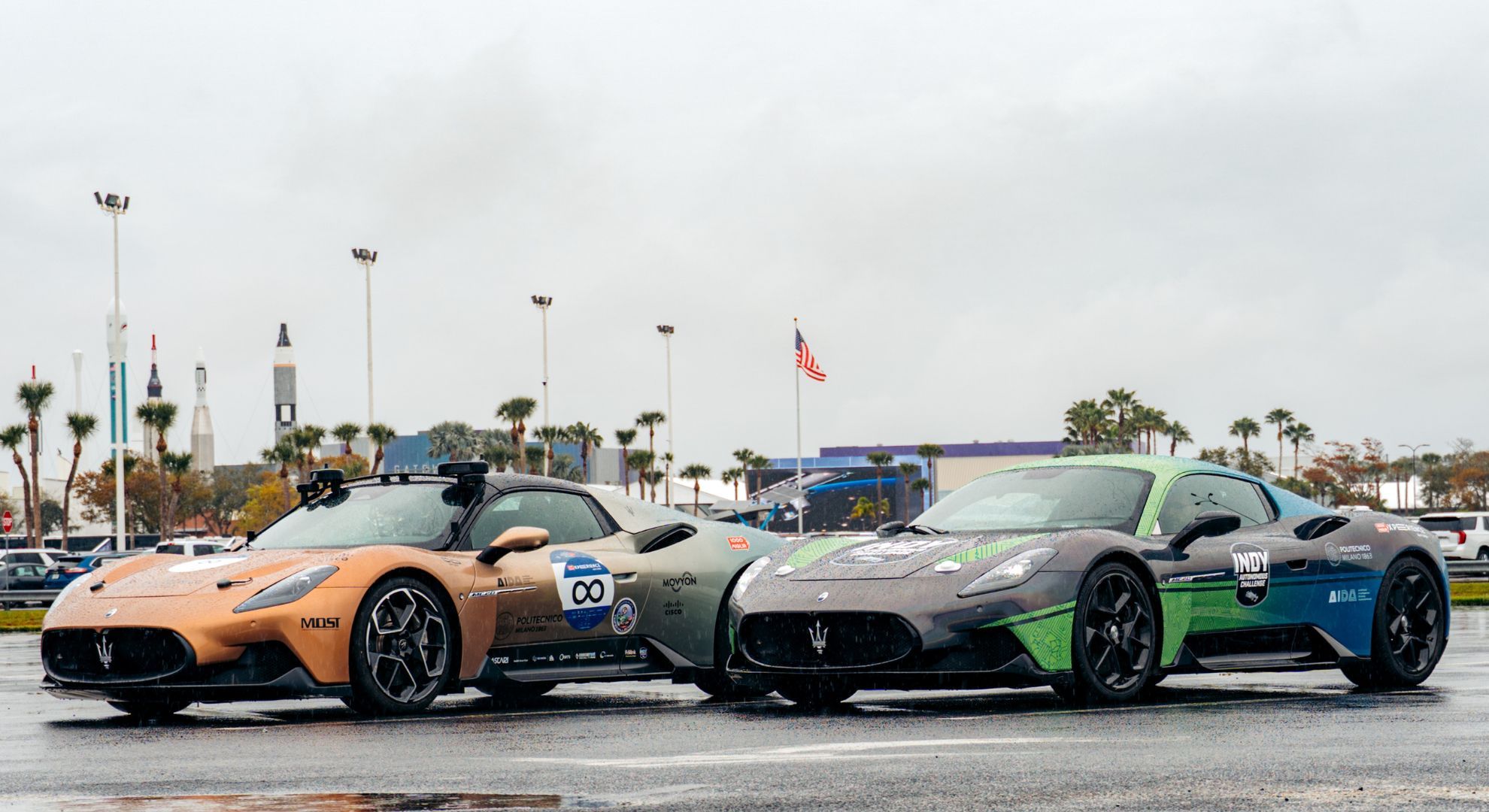AI is officially putting petrolheads on notice. A Maserati MC20, with not a single human behind the wheel, has just shattered the autonomous land speed record, clocking a blistering 318 km/h. No hands. No hesitation. Just pure, machine-driven precision.
This wasn’t some niche science fair experiment—it was a high-stakes collaboration between Italy’s Politecnico di Milano and the Indy Autonomous Challenge, taking place at the Kennedy Space Centre on a runway designed for actual space shuttles. Because, obviously, if you’re going to push an AI-powered supercar to the limit, you do it somewhere built for things that literally fall from space.
The MC20, powered by a 621bhp, 3.0-litre twin-turbo V6, was paired with cutting-edge self-driving software from the Artificial Intelligence Driving Autonomous (AIDA) project. The result? A Maserati that tore down the 4.5 km stretch of tarmac with Terminator-level accuracy, setting a new benchmark for autonomous driving tech.

But this isn’t just about speed. These tests are essential for refining AI driving systems, pushing them to extremes before they trickle down into the real world—much like how F1 technology, such as turbochargers and hybrid power units, eventually finds its way into everyday road cars.
Today’s high-speed AI could pave the way for safer, smarter autonomous driving in the near future. Elaborating on this, Paul Mitchell, CEO of Indy Autonomous Challenge and Aidoptation BV, stated: “These world speed records are much more than just a showcase of future technology; we are pushing AI-driver software and robotics hardware to the absolute edge. Doing so with a street car is helping transition the learnings of autonomous racing to enable safe, secure, sustainable, high-speed autonomous mobility on highways.”

Mitchell summed it up best: these record runs aren’t just about bragging rights—they're stress tests shaping the future of AI-driven mobility. And if an autonomous MC20 can rocket to 318 km/h without flinching, maybe we’re not that far from a world where your car drives you home from the pub while you snooze in the back.
While many EVs in China and other parts of the world claim to offer similar capabilities in the future, “the goal of high-speed tests is to evaluate the behaviour of robo-drivers in extreme conditions,” explains Prof. Sergio Matteo Savaresi, Scientific Director of the project and Director of the Department of Electronics, Information, and Bioengineering at the Politecnico di Milano.
One thing is clear—AI cars aren’t coming. They’re already here, and they’re moving fast.






